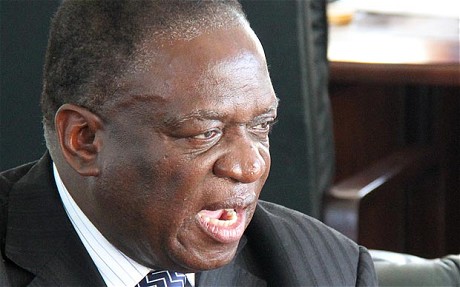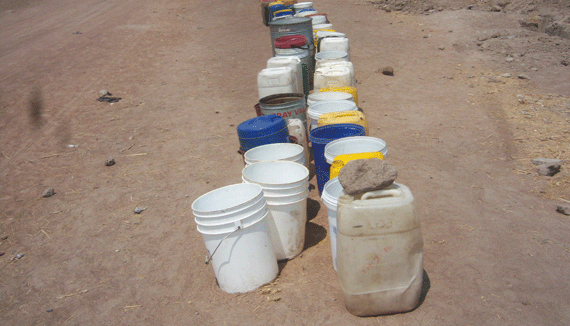
VICE-PRESIDENT Emmerson Mnangagwa yesterday took the Grain Marketing Board (GMB) management to task over its failure to pay farmers for grain deliveries despite receiving money for strategic grain reserves from Treasury each year.
BY BATANAI MUTASA/NQOBILE BHEBHE
Addressing the business conference on the sidelines of the ongoing Zimbabwe International Trade Fair in Bulawayo, Mnangagwa said the government did not know how GMB was spending its money.
“Government raises money for the GMB and they buy grain for national strategic reserves and use,” he said.
“The grain is sold to the market, but that money never returns to Treasury and we wonder where the money has gone.”
Most farmers have blamed their poor harvests this year on GMB’s failure to pay them for grain delivered last year.
The government had to rescue the situation by raising $50 million through Agriculture Marketing Authority (AMA) bills to liquidate the millions of dollars owed to farmers for grain deliveries.
However, Mnangagwa said the government was committed to ensuring food security and would continue to subsidise GMB operations despite its failure to account for funds realised from grain sales.
- Chamisa under fire over US$120K donation
- Mavhunga puts DeMbare into Chibuku quarterfinals
- Pension funds bet on Cabora Bassa oilfields
- Councils defy govt fire tender directive
Keep Reading
He said the government was serious about ending corruption and appealed to the private sector to help fight the vice.
“We are against corruption. People in the private sector should help us fight corruption,” he said.
“I know people are aware of corrupt practices which they are not keen to expose.
“We must fight corruption together.
“But when we say the public sector most people think of about the President (Robert Mugabe) and ministers. Yes, they belong to the public sector, but it’s very wide.
“It’s a burden on each citizen to fight corruption.”
Meanwhile, Mnangagwa said the economy was in dire need of foreign investment. He said a lot still needed to be done in the monitoring of the Zimbabwe Agenda for Sustainable Socio-economic Transformation (ZimAsset).
“We are now in the second year of implementing ZimAsset and notable progress has been made towards achieving the set targets,” he said.
“However, a lot still needs to be done, particularly in the area of monitoring the implementation and evaluation of cluster projects.
“The economy at this moment is subdued and there is need to complement local investment with foreign direct investment to provide capital and operations requirements of the manufacturing sector.”
Mnangagwa said the government would accelerate the implementation of infrastructural projects.
“We want policies to be implemented to achieve the ZimAsset goals,” he said.
The annual conference was held under the theme “Stimulating Exports: Seizing Opportunities to Accelerate Growth under ZimAsset”.










